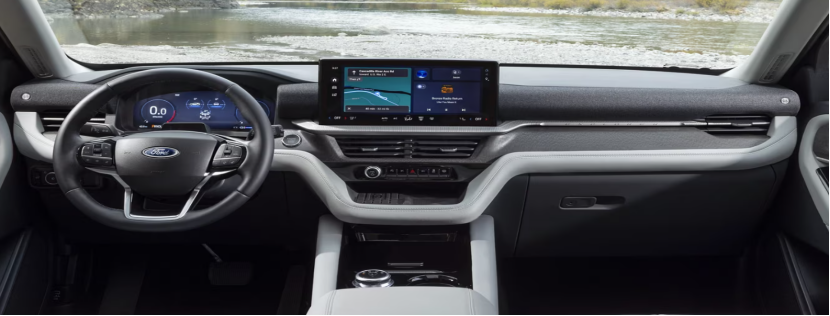According to foreign media reports, Ford plans to introduce new models in the European market starting in 2027, including hybrid and fully electric vehicles. This initiative aims to expand Ford's passenger car product line in Europe. Christoph Herr, head of Ford's German-speaking region, informed dealers that the company’s global leadership has approved a long-term investment plan for the European market, focusing on the development of new hybrid and electric models. Herr stated in an internal letter to dealers, 'The Ford Board has decided to continue investing in the development of new models to drive steady growth in passenger car business over the coming years.' He further explained that Ford will 'invest in the development of multiple new models, some of which will be co-developed with partners and will include various powertrains such as hybrid and electric.' However, he did not disclose specific information about the partners or the market positioning of the new models. Industry insiders speculate that Ford may deepen its collaboration with the Volkswagen Group. Ford's recently launched Explorer electric vehicle and Capri compact EV are based on the Volkswagen MEB platform, which is also used for Volkswagen’s ID3 and ID4 models. Reports suggest that Ford may develop an electric version of the Fiesta based on a new small MEB platform used for Volkswagen's upcoming ID1 and ID2 entry-level electric models. Martin Sander, head of Ford's passenger car business in Europe, stated in 2023 that the company does not rule out using Volkswagen's technology platform to launch a fully electric alternative to the Fiesta. For Ford, an entry-level low-cost electric vehicle would be a core strategy for its return to large-scale operations in Europe. Additionally, Ford dealers are anticipating a replacement for the Focus compact car. Ford may also adopt a new software-driven electric vehicle platform in Europe, which is currently being developed in California, USA. Although this platform is currently primarily aimed at medium-sized pickups, its highly flexible architecture is also applicable for developing small cars for the European market. While Ford declined to comment on future product lines and investment plans, the above reports have rekindled hope among many dealers and employees. A German dealer remarked, 'We love this brand, and it is a symbol of Europe, so it should continue its glory.' Another dealer added, 'This move is a relief. We need new models, and we cannot rely solely on electric vehicles.' In recent years, Ford has seen a decline in its share of the European passenger car market as it shifted its focus to more profitable light commercial vehicles. According to the European Automobile Manufacturers Association (ACEA), Ford's registrations in Europe (including the EU, EFTA, and the UK) fell by 1.5% year-on-year to 185,404 vehicles in the first five months of this year, with its market share dropping from 3.4% to 3.3%. Market research firm Dataforce reports that Ford's best-selling passenger car in Europe is the Puma small crossover, which sold 64,212 units in the first five months of this year, followed by the Kuga SUV (44,573 units) and the Focus (32,499 units). Due to a slowdown in electric vehicle demand in Europe, Ford's Explorer and Capri saw moderate registration figures, with 15,764 and 5,068 units registered respectively in the same period. It is reported that the Fiesta has been discontinued in 2023, along with the Galaxy and S-Max small vans. Meanwhile, the Focus is also set to be officially discontinued this autumn.
Ford Plans to Launch New Models in Europe Starting 2027

Share this post on: